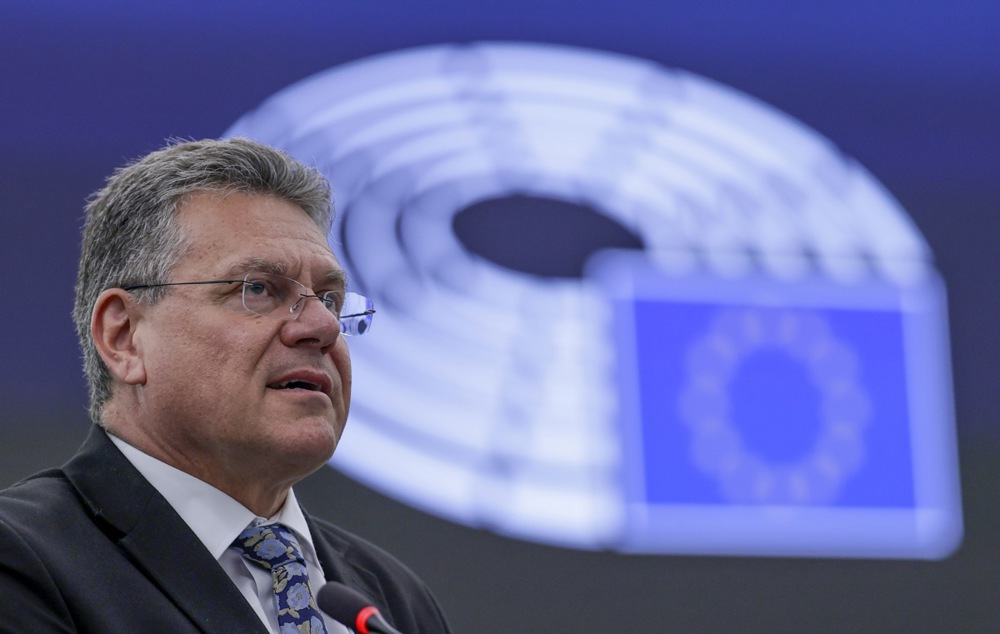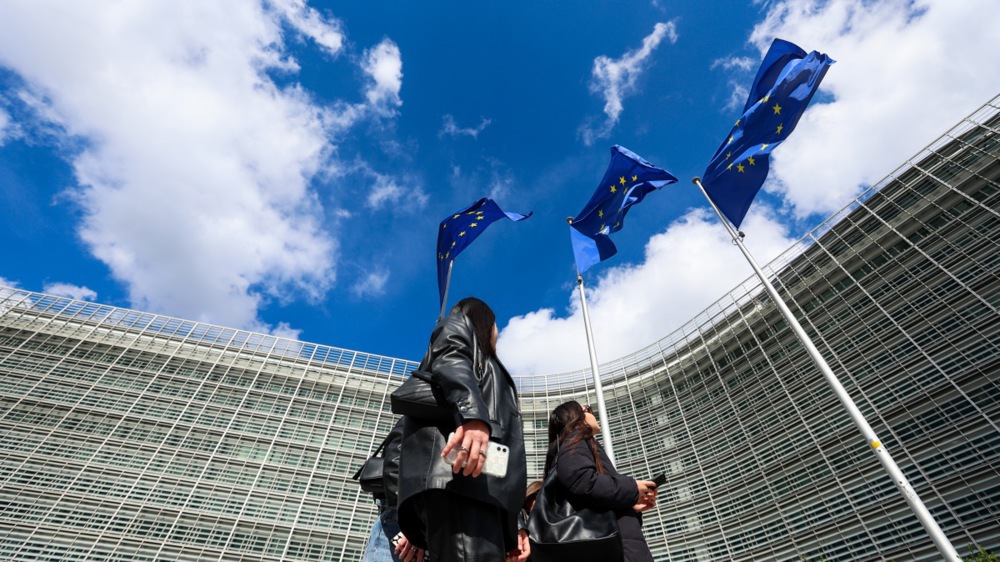The EU has called for full traceability in electric vehicle batteries by 2027. But it still doesn’t have the data to back that goal up, an EU Commissioner said.
“We do lack data, but we have a diagnosis — and companies have it too,” said Jessika Roswall, the EU’s commissioner for environment and circular economy.
Roswall was speaking about the traceability and sustainability of raw materials at a Brussels summit on May 15.
Information on batteries’ composition, sourcing, and lifecycle mostly resides with private firms. These firms do not currently share the data in a way that allows regulators to verify their sustainability claims or track critical raw materials through the supply chain.
Introducing a new battery passport lies at the heart of the EU’s new battery regulation, which came into force in August 2023.
The passport will digitally record a battery’s raw materials, carbon footprint, recycled content, and eventual recycling potential across its lifecycle.
Central to batteries are critical raw materials (CRMs) like lithium, cobalt, and nickel — which are essential to electric vehicles (EV) batteries and energy storage.
Europe imports nearly all of these critical raw materials, while China controls most of the refining and processing capacity.
The EU’s Critical Raw Materials Act, adopted last year, had the lofty goal of reducing this dependency and strengthening supply chain resilience.
Lithium, for example, is essential for battery energy density and lifespan.
The Democratic Republic of Congo supplies over 70 per cent of global cobalt–but most of it is processed in China.
According to Forbes, China controls between 70 and 80 per cent of the global processing capacity for these critical battery materials, giving it outsized leverage over the global green economy supply chain.
The EU had concluded 14 partnerships on critical raw materials (CRMs), with 12 roadmaps targeting the development of mining, processing, and recycling capacities, Koen Doens, the European Commission’s director general of international partnerships, said at the summit.
He said the Commission is building multiple financial instruments tailored to specific needs of partner countries and projects, reflecting diverse challenges in CRM supply chains.
These partnerships link directly to the goals behind creating the battery passport, as most raw materials used in batteries — lithium, cobalt, nickel — come from outside Europe.
Doens described how development banks have expanded mandates to finance CRM projects, and some EU member states launched CRM funds to support supply diversification.
Missions on the ground could assess market failures and tailor support to specific cases, emphasising the need for on-the-ground intelligence combined with financial tools, he said.
Still, “we are working within our financial constraints”, he admitted.
Despite these grand efforts, transparency in battery supply chains remains weak.
A lack of shared, reliable data on material sourcing and battery composition means sustainability claims are “difficult to verify”, Roswall said.
The passport depends on companies sharing data in standardised formats, but competitive concerns and an absence of interoperability have slowed progress here badly.
The battery industry says creating a truly circular battery ecosystem depends on knowing exactly what materials are inside each battery — their origin, chemical composition, and state of health — so they can be reused or recycled efficiently.
The passport aims to supply this digital “identity card,” but without accessible, reliable data from manufacturers and miners–it risks becoming a pointless EU paper exercise.
The battery passport’s success hinges on overcoming “data silos” in an industry where firms guard information as commercial secrets, said a study by Brussels think tank CEPS.
Without trust and clear standards, it appears the passport will struggle to make any difference in reducing the alarm geopolitical dependencies in the battery sector.
EVs, central to battery policy, are back in demand across Europe this year. But analysts warn that momentum could falter amid Donald Trump’s escalating tariff threats, which have already shaken earnings forecasts for several automakers, the Financial Times reported.





